There is nothing worse than the feeling of being excluded, the feeling that no one wants you. That is why one of our main aims is to create the space where people can speak their mind and feel acknowledged, says Dr Ruth Farrugia, Director General and Vice Chair of The President’s Foundation for the Wellbeing of Society.
“The foundation recognises relationships as the fundamental structure nurturing human existence. We want to offer our contribution for the wellbeing of society by creating the space to listen, explore, discuss, learn about and research ways of enhancing these human relationships to become forces for meeting human needs, while providing opportunities for each and every individual to develop his or her full potential within a society that is inclusive and supportive.”
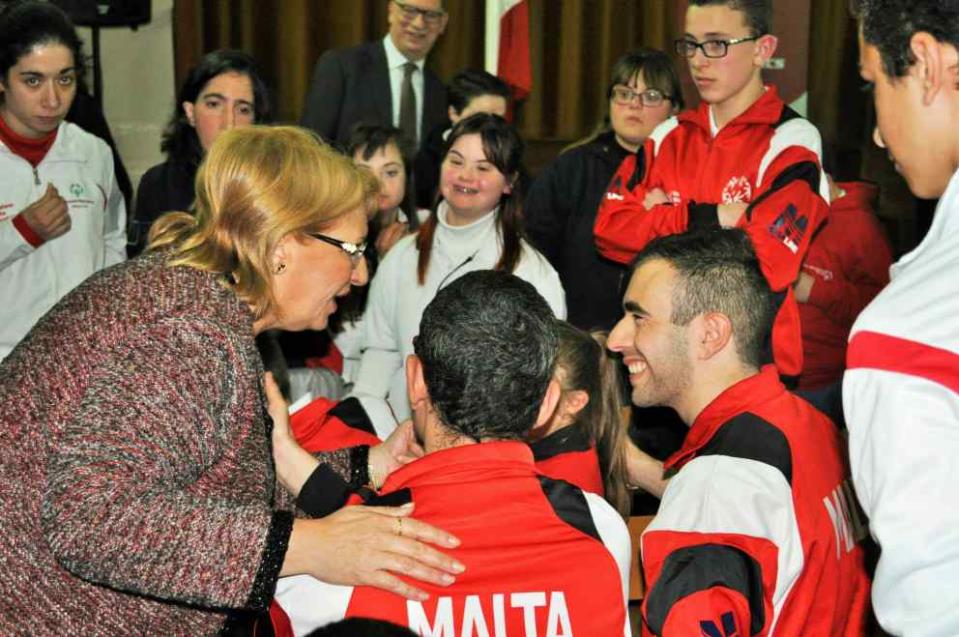
The foundation is chaired by President Marie Louise Coleiro Preca. It is made up of a board of administrators, a council of governors, which includes former Presidents and Prime Ministers, an ethics committee, an executive staff, six fora: Community, Disability, Child, Interfaith, Trans-culturalism and Family and also five academic entities – the National Institute for Childhood, an Observatory for Living with Dignity, a Family Research Centre, a Centre for Freedom from Addiction and a National Hub for Ethnobotanical Research.
The number of fora may increase from time to time. “They are our method of listening to people. We are interested in those things that bring wellbeing. The foundation is about identifying, nurturing and promoting wellbeing. We meet people at fora level and we ask them what works for them. Others might find that these ideas also work for them and take them on board. We help with empowering people do things for themselves and generate wellbeing.”
Listening to people, giving them space to talk
Dr Farrugia says many of the ideas that crop up in these meetings then end up before the academic entities. “People get to know if the things on their mind are something academics are bothered about. Then the President takes the findings and the report and gets people together - people who can change things - and says ‘this is what is on peoples’ minds and the academics think that these ought to be followed up so please take notice.’ That is the idea in a nutshell.”
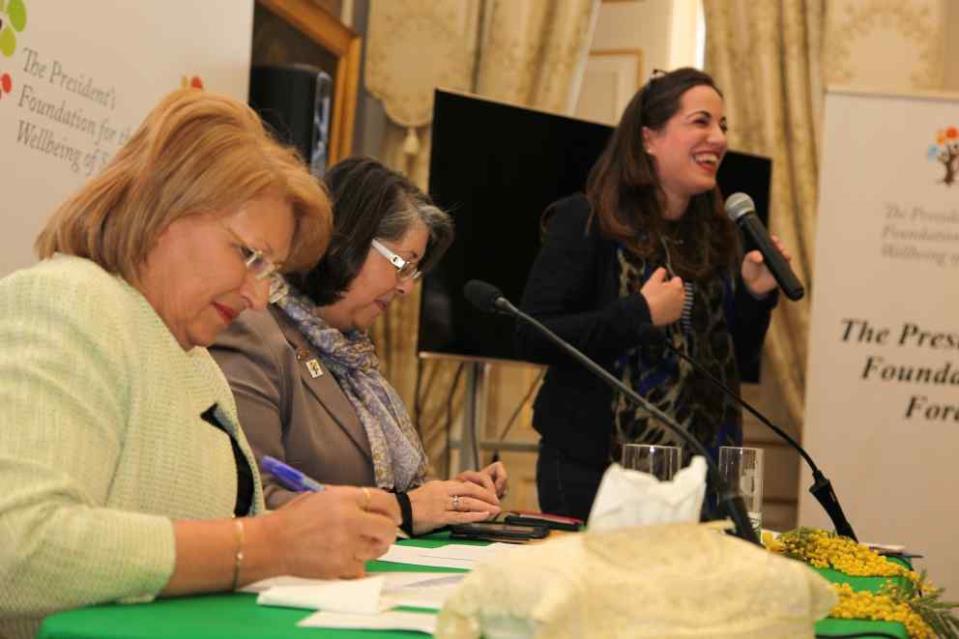
“We plan our meetings on a three month basis. As an example this week we have a meeting with NGOs in Gozo dealing with disability. Some of the meetings are open to the public and what is surprising is that people do attend these meetings and they really say what they feel. One of our main goals was to create a safe space and people seem to have found it. They speak about very intimate and important things without feeling constrained by politics or other allegiances. They feel free to speak, which we take as a great compliment.”
Dr Farrugia mentions some of the past and upcoming meetings, which include meetings with different religious groups, such as different Christian and Muslims groups, Hindus, Jews, Orthodox, Bhuddists, pagans and many more, as well as meetings on unaccompanied children asylum seekers and children under national protection, LGBTIQ issues, different forms of disabilities, single parents, food and nutrition, survivors of domestic violence and a children’s rights.
“Some of these small religious groups had wanted to network with others and actually discovered one another through one of these meetings. We had one particular case where the Ahmadiyya Muslim group had been trying to get in touch with the Jewish community and they actually managed to do so in one of our meetings. This is one of the things that we do, we facilitate people coming together.

We also facilitate people speaking out. Most of the stuff we do is not public and rather low-key. We had a meeting for the transgender community and we had transgender people in different stages of their transition as well as parents. They ended up creating an NGO out of the meeting. It is called Gender Liberation and was launched last week. There are a few new NGOs in the pipeline. We had a group of domestic violence survivors in Gozo and some said there are not enough support services in Gozo. One of the women said they need to set up their own NGO in Gozo. If they choose to do that we will offer as much support as we can, maybe helping with contacts. Creating the space itself is a really big thing. People really appreciate having space to be acknowledged. We do not do the actual groundwork but we empower these people to do it for themselves.”
The President’s Secret Garden
The Children’s Secret Garden was another initiative taken by the foundation. “It emerged from our meetings with families that children do not have enough safe open spaces. We went back to the President and told her this and she said ‘OK, you can use my private garden. This is how it started.
The garden is open every Saturday morning and we have children of all ages coming over, taking part in the activities and having a great time. We are asking these children to evaluate their experience because what we are interested in is how children feel. We set up the activities but what we want to know is if they enjoy these activities. That is the way we want to do things because otherwise it is just adults doing things for children, rather than having the children participating.
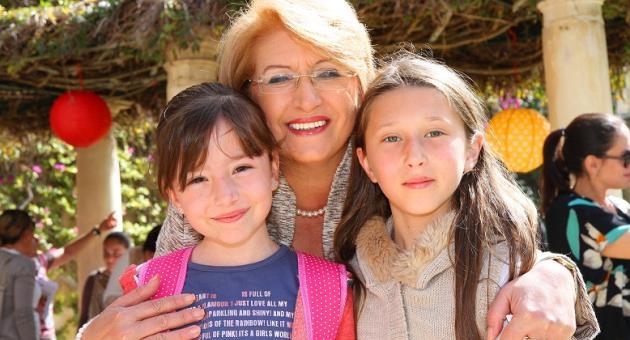
The next thing we are going to do is to line the walls of a room leading to the garden with books. The President goes to schools and gets a lot of feedback from children. One of the things they have told her is that they would like somewhere open, quiet and safe where they can read, and this is ideal. Maybe other gardens and communities will do the same. We want other people to do it as well.”
We have a few big things coming up. There will be a lecture coming up on 11 May with Professor Richard Rubenstein as a guest speaker will be. He is an authority on peace and religions. He is a human rights lawyer and a Jew who has worked most of his life with the Muslim communities looking at human rights. He is going to be taking about the fact that two different cultures can come together and find peace.
Last week we met unaccompanied asylum seeking children. There are 27 of them in Malta at the moment. We got some very interesting feedback about their experiences. They are also thinking of setting up an NGO – when the tragedy happened a few weeks ago a person who was formerly an unaccompanied asylum seeker came to Malta to give support to people living here and she is very keen on setting up an NGO to support these children, who are a very vulnerable group.
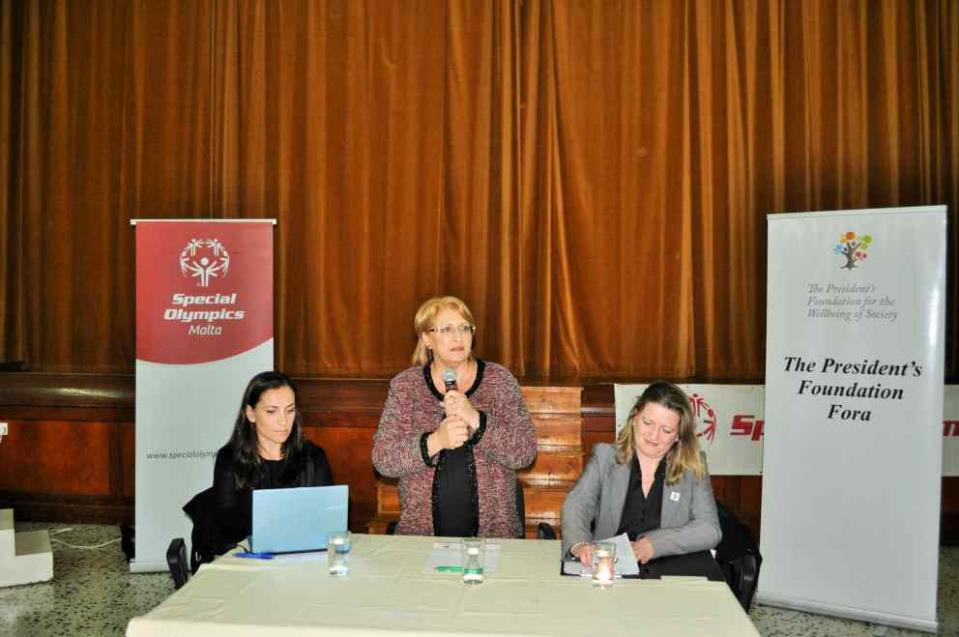
What is wellbeing?
“We celebrated World Health Day by inviting doctors and paediatricians to talk about what they want. It usually all about the patients. It turns out that doctors get really upset when their patients go through a rough time. They take home the fact that their patient is unwell, that there is a ripple effect on their families. That affects their personal wellbeing.
The more we identify and help people come to terms with it, it helps us understand what constitutes wellbeing. Everyone talks feeling good but it’s not the same for everyone, although there are commonalities.
We are trying to get people to think and talk about things and get the authorities to move on certain things, in a diplomatic way because it is the President we are talking about.
We recently had a really good meeting where all NGOs were invited. What we are going to do is we are having a roundtable coming up, with policymakers, MPs, ministers – we are going to share what happened at that particular event. That is how we work.”
The most important achievments
We asked Dr Farrugia what she thought the biggest achievements of the foundation have been so far. “A good number of people feel acknowledged. That is important as the outcome. People who come to these meeting seem to feel good while there.
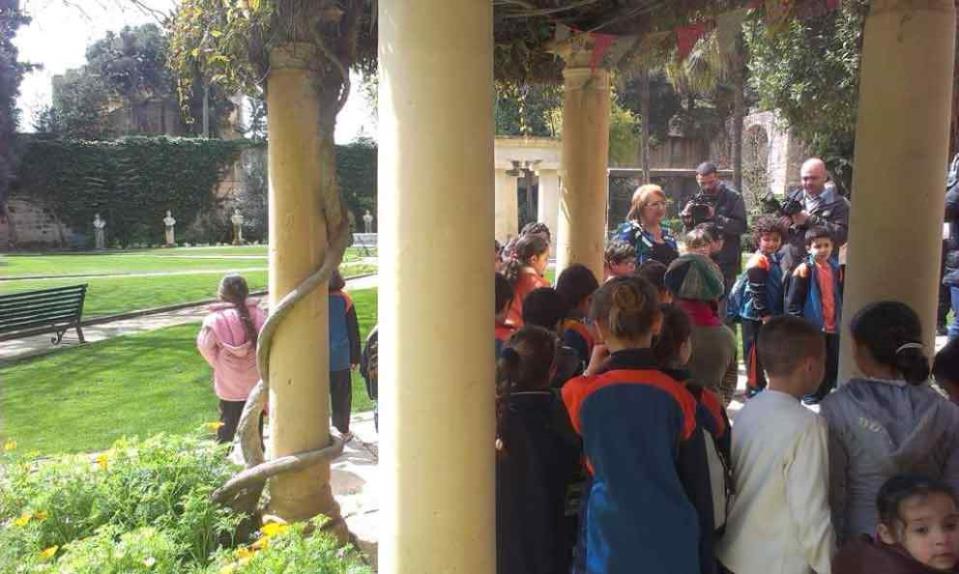
We had a meeting with parents of children with very severe mental and physical disabilities –we organised a fantastic meeting in Verdala and we had a music room, an exercise area, a small extrasensory room, a storytelling room. The parents were there to tell us what made their children happy. The fact that we asked them rather than having said ‘what are you moaning about’ – the different attitude – they enjoyed telling us that their children love swimming, music, being with other children. There was a space for them to be proud of their child. The process itself really created wellbeing. We are planning a follow up event where the siblings will also be around.
We have encouraged people to be positive and the process itself has helped people to be positive. Along the way be have empowered people.”
Research
The foundation has also carried out interesting research covering topics such as early school leaving, what fosters wellbeing between couples, the relationship between teachers and children, the question of whether there is such a thing as problematic internet abuse in Malta and access to healthy food.
“We want to share the information as widely as we can. We will have a new website shortly. We currently use our Facebook page, which currently has 3,000 likes. This is good because it shows that people do check what we are doing. We also have international contacts, with which we share our information. We don’t want to keep things to ourselves; we want as many people as possible to know what we are up to. In the past year we have tried to be relevant but we are not after getting the credit for it – we are after getting people together.
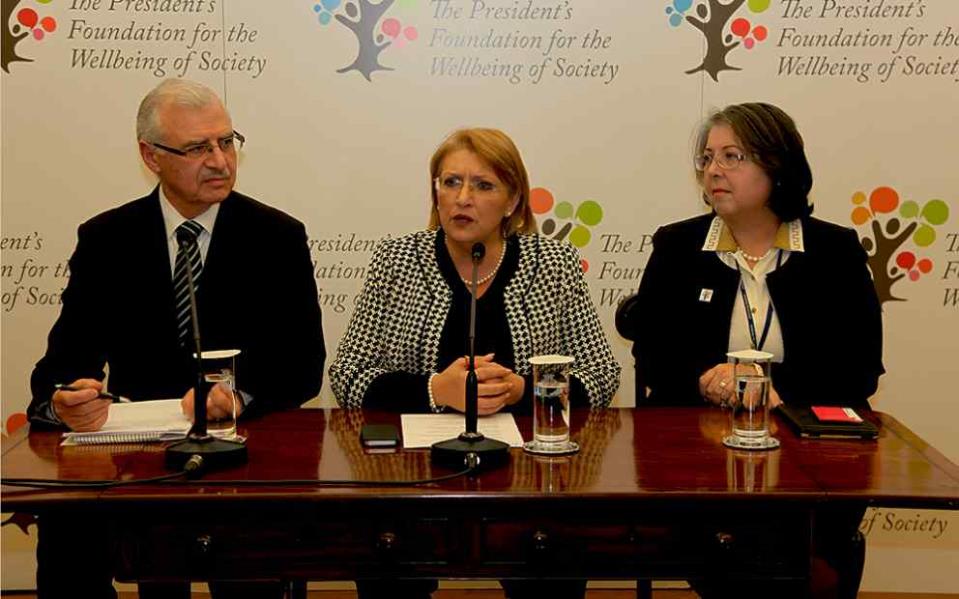
The importance of inclusion
“The President just wants everyone to feels like they have a stake in it. If you feel included and acknowledged in society than you achieve wellbeing. There is nothing worse than being excluded, that feeling that no one wants you and there are many reasons why that could happen.
We also do a lot of migration-related work. A year ago we facilitated the finalisation of the first joint report between IOM and UNHCR on unaccompanied minors. What happens to them. There is a whole set of very concrete recommendations of what should happen to unaccompanied minors on arrival. How they should be received and accommodated and what kind of support they should get. It is coming up for revision because it is a year past. One of the first things that the President did was to host this meeting. Migration has been big from the start for her. She shows a lot of support publicly.
We have also met many migrants, not necessarily the irregular kind, through our transcultural forum. We met a couple who have lived in Malta for a number of years. He had a very good job but because he is black no one speaks to him. No one would even say good morning to him at work. His wife was fed up and she set up free sewing lessons to make contact with people. That is a lovely story but at the same time it is terribly sad. The fact is there are so many like them, who are treated in this way just because of their skin colour. To me it is a race issue we do not acknowledge. At least we get the people who attend our small groups to interact with each other.
There is a lot of work for us to do. Religion seems to be a way in although we recently had a meeting where a black man stood up and people automatically assumed that he was Muslim, an irregular immigrant and uneducated when in fact he leads a Christian church, has Maltese nationality and has a lot of formal education. There is all this prejudice and the foundation needs some time to come to terms with it.